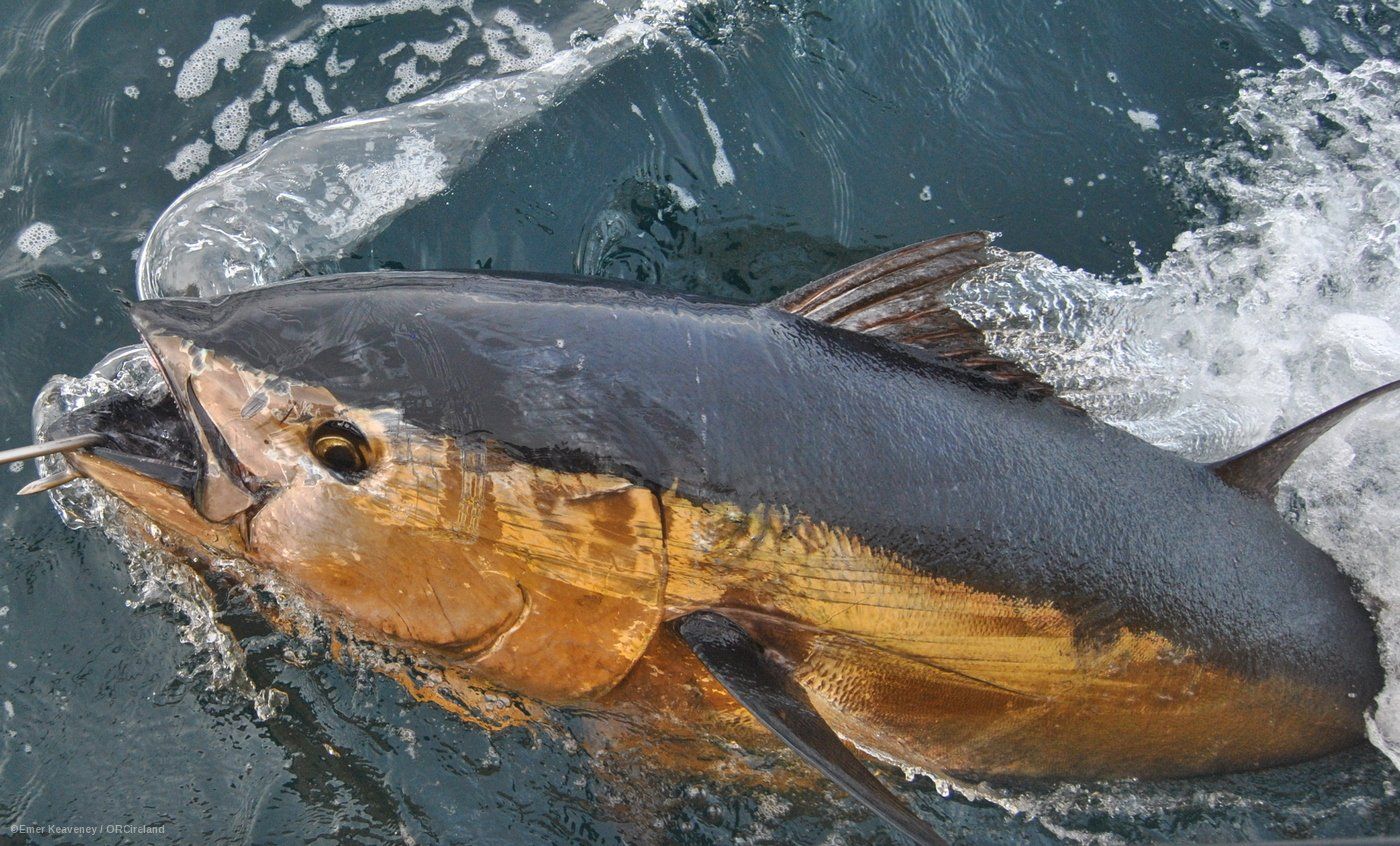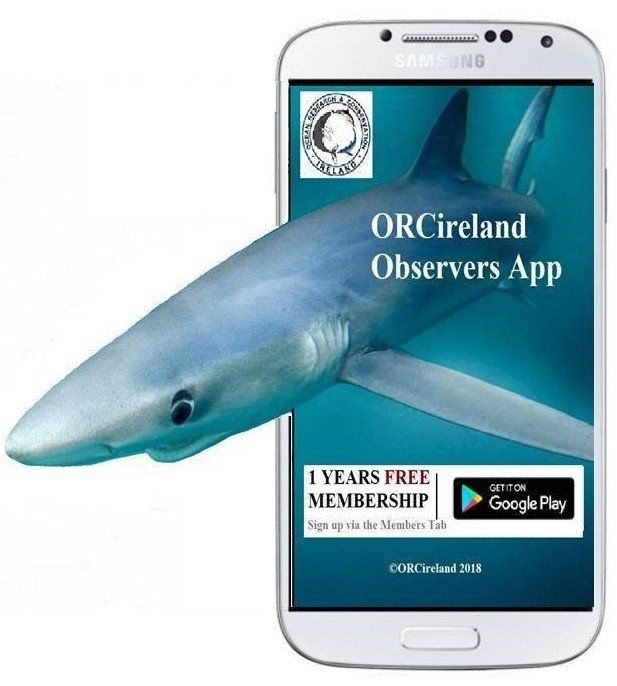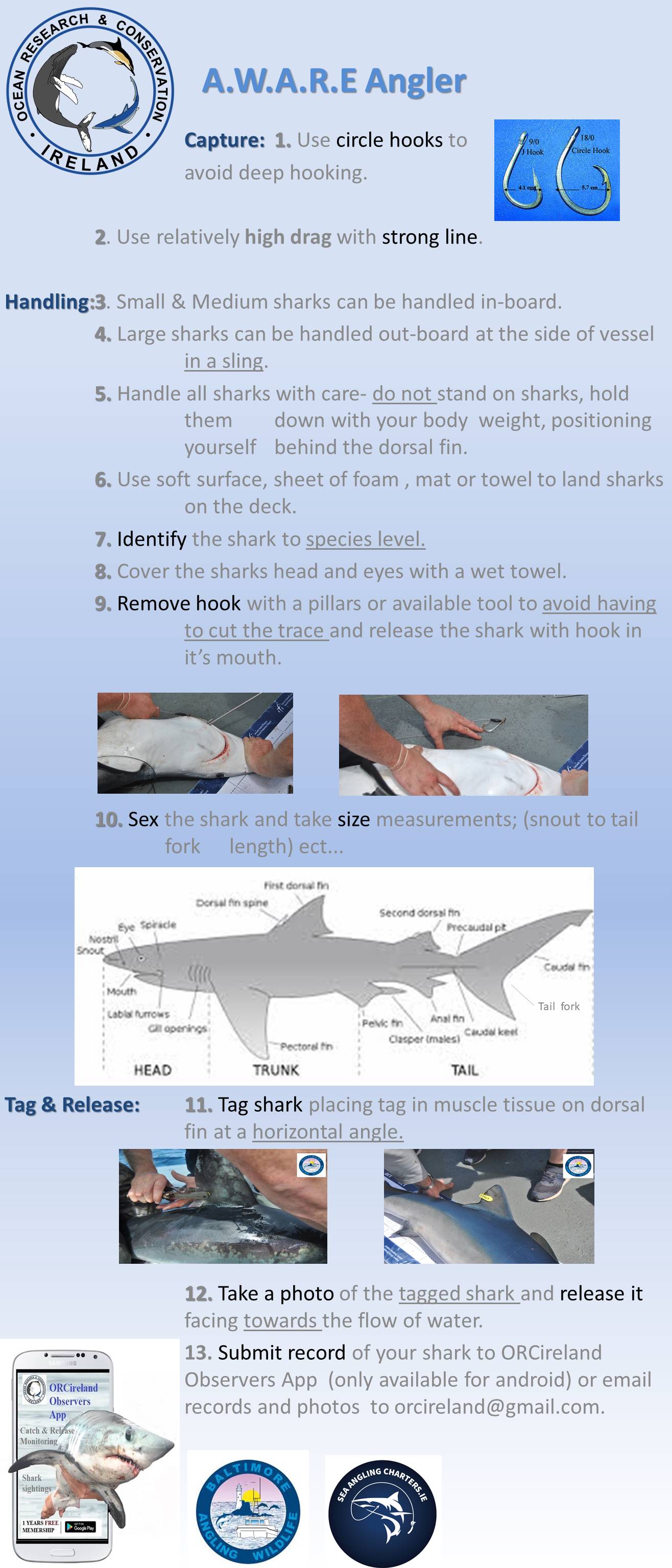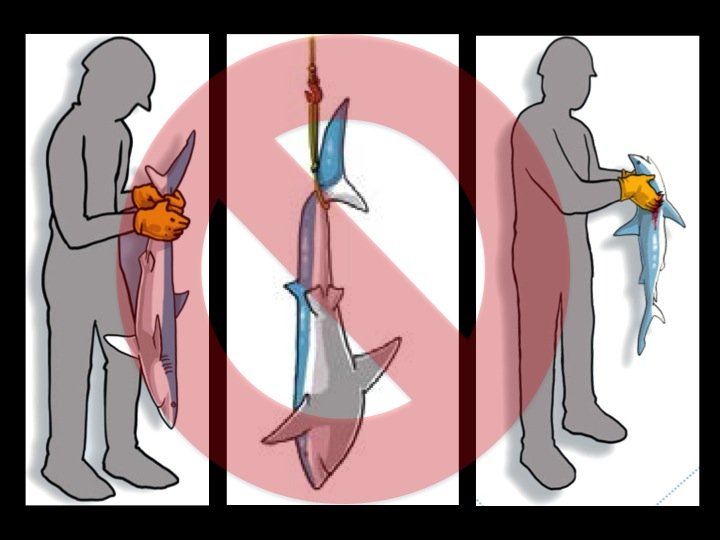Angling for Conservation
Globally a quarter of all sharks and rays species are threatened with the risk of extinction according to recent estimates from the IUCN red list criteria. Much of this extinction risk is the result of overfishing, where current exploitation rates often exceed the rebound potential of many species.
The relatively slow growth and low reproductive rates of sharks and big fishes like Atlantic blue-fin tuna ( Thunnus thynnus ) also makes them particularly vulnerable to population declines from both direct and incidental harvest. Reversing population level declines shown for many species will require a suite of approaches, including protection of critical habitats , long-term population monitoring programs , and reductions in fishing mortality . Since many of these management actions require substantial societal and stakeholder support, public awareness of populations in peril and attitudes favouring their recovery are essential for the conservation and sustainability of marine megafauna populations.
Sea anglers, commercial and recreational fishermen have long been guardians of one of Ireland's bets kept secrets, that our waters are seasonal homes for a variety of shark and tuna species. Of the 71 pelagic and deep sea species of shark and ray specie recorded in Irish waters, 62% of them are ' threatened with extinction' or ‘ near-threatened ’ (NPWS).
Until recently the common perception was that sharks * and their populations were robust and resilient. We now know this is not the case: over a quarter of species found in UK and Irish waters are listed as threatened on the IUCN Red List – including five considered Critically Endangered.
Quotas for Atlantic bluefin tuna set by ICATT stand at 26,000 tonnes for 2018 in the north-east Atlantic, a level exceeding the TAC (total allowable catches) of 2008 at 23,000 tonnes when the stock last crashed. A shocking quota of 36,000 tonnes has been set for Atlantic bluefin tuna for 2020. Ireland has 0% in this quota for either commercial or recreational fishing, and has just a small quota for by-catch. Special permits are licenced to conduct science on these giant fish by experts and experienced anglers following best practices. This large quota threatens the survival of not only bluefin tuna stocks in the Celtic Sea and north coast of Ireland but also sharks, dolphins, turtles and seabirds that may be by-caught in the process of targeting tuna with such intense fishing effort.
Video by; Killian Condon, Celtic Sea, 2018.
Illegal fishing practices have also become a problem in Irish waters. On Thursday the 30th of August, after numerous complaints by local angling and commercial fishing boats, the Irish Naval Service conducted an investigation of a Spanish fishing boat off the Cork coast, where a vessel was detained and brought into Castletownbere, handed over to the Gardaí on Friday the 31st of August, and the Sea Fisheries Protection Agency (SFPA), with alleged infringements related to shark finning on-board the “Virxen de Blanca” in contravention of EU Regulation 1185/2003, as amended by the EU Regulation 605/2013. The species on-board mainly consisted of blue shark ( Prionace glauca ) and mako shark ( Isurus oxyrinchus ). Since the boat skipper has been charged and the vessel has been released on £335,000 bond. Shark finning and targeting sharks has been banned in the EU since 2013, yet many shark specie, such as blue's and porbeagles end up in fish markets across Europe and Asia.
Video by: Killian Condon, Celtic Sea, 2018.
By-catch of unwanted species such as shark, cetacean, seal and sea-bird species are common in fisheries for herring, tuna and mackerel. Recent innovative mitigative measures such as the introduction of pingers to pelagic trawl net fisheries has been shown reduce the impact of by-catch of cetaceans and seals but is limited by habituation of the animals to the sound source intended to deter it. In some cases such as herring fisheries in Norway, pingers have become the "dinner bell" that alerts the killer whales ( Orcinus orca ) to a fishing vessel trawling in it's catch. Robust estimates of by-catch of marine mammals, sharks and seabirds are required to understand the level of the issue through-out Irish waters.
Anglers and trawlermen can provide a wide range of information on catch & release and by-catch in pelagic trawls and longlines of sharks, skates,rays and big fishes like tuna, improving our understanding of their movements and population trends. In time, this could feed into more effective management of commercial fisheries and protection of those species under greatest threat.
Share/log your sea-angling catch & release or bycatch records using our free app "ORCireland Observers"! --> Click the App icon below!
When sea-angling or fishing, getting sharks off the hook and back into the water as quickly, and as safely, as possible is vital to it's chances of survival post catch & release.***Remember always support a shark body, never hold it by the gill rakers or by the tail!
Citizen science programs
range in the level of responsibility that members of the public have, from
those where scientists are contracted to conduct work on the public's behalf,
to those where members of the public independently conduct all aspects of the
program, including design, implementation, analysis and reporting. Such programs have been
increasingly employed in recent years for monitoring organisms and
environments, both terrestrial and aquatic, e.g. for the collection of
presence/absence data for plants or animals.
These projects are usually
aimed at attracting a large voluntary workforce, which can allow the collection
of considerable data sets with substantial spatial and/or temporal coverage
that would not be feasible for a research organisation without significant cost.A greater quantity of data
may increase statistical precision and power in analyses, but there may also be
sampling effects that may influence the quality of the data and require
investigation, e.g. volunteer's species identification skills and unbalanced
sampling effort.There are also costs of implementation and
maintenance of citizen science programs, e.g. volunteer training, provision of
feedback and data analysis. However, they can have long-term cost-effectiveness
and lead to benefits that include improved public ownership of a resource and greater
acceptance of science and management decisions.
Recreational fishers have also contributed
voluntarily to scientific data collection via catch and effort logbooks and
surveys and both contributory and collegial fish-tagging studies, e.g. http://info-fish.net/westag
13
, 14
, 15
, 16
, 17
, 18. In contrast, the
collection of representative biological data necessary for age-based fisheries
stock assessments is usually conducted by scientists, rather than citizens, via
spatially- and temporally-stratified sampling of catches obtained by
fishery-dependent means, e.g. participating commercial fishers' vessels,
commercial fish markets and boat-ramp surveys of recreational fishers' catch,
and/or by fishery-independent means, e.g. aboard research vessels.Recreational fisheries can play a significant role in
the population dynamics of threatened fish species, but have received much less
research and management attention than commercial fisheries.
If you would like to contribute to a growing body of data on sharks and tuna in Irish waters you can submit records of catch & release or contact us at orcireland@gmail.com for more information. Please support our work by giving a small donation or by becoming a member via the "Get Involved" tab! Get 1 years FREE membership when you download Our new App " ORCireland Observers
" which is available on Google Play Store.
© Ocean Research & Conservation Ireland (ORCireland) and www.orcireland.ie , est. 2017. Unauthorized use and/or duplication of this material without express and written permission from this site’s author and/or owner is strictly prohibited. Excerpts and links may be used, provided that full and clear credit is given to Ocean Research & Conservation Ireland and www.orcireland.ie with appropriate and specific direction to the original content.
SHARE THIS ARTICLE


















